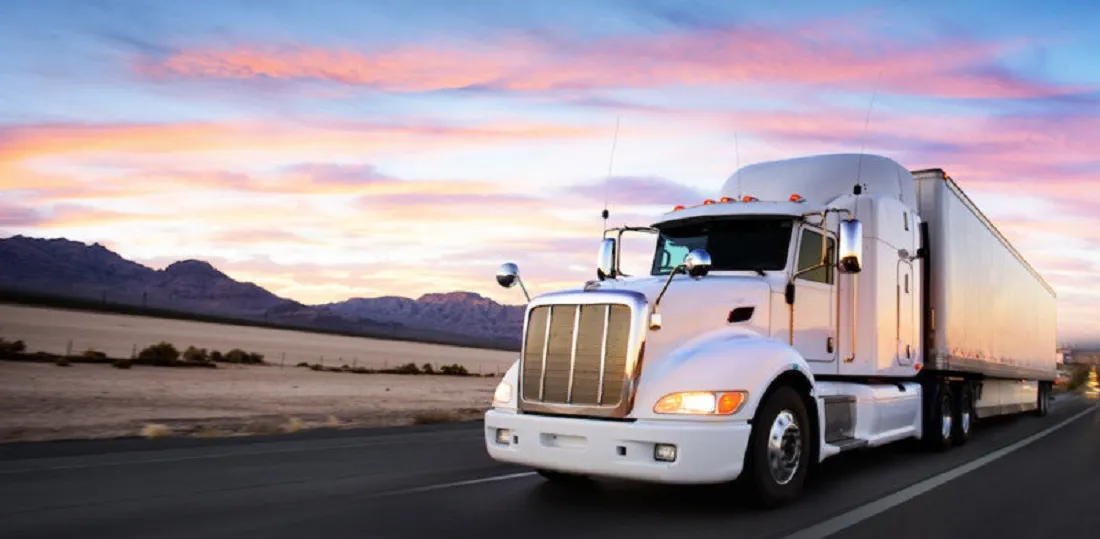Table of Contents
Start a Trucking Business in Arizona
If you’re considering starting a hauling business in Arizona, you’ve come to the right place. The hauling industry plays a vital role in meeting the transportation and waste disposal needs of individuals, businesses, and communities. Arizona’s growing population and thriving economy offer ample opportunities for entrepreneurs looking to enter this sector.
Starting a hauling business requires careful planning, research, and a solid understanding of the local market. In this blog, we will guide you through the essential steps and considerations to help you kickstart your hauling business in Arizona.
From legal requirements and equipment selection to marketing strategies and operational efficiency, we’ll cover key aspects of starting and running a successful hauling business. By the end of this blog, you’ll have a clear roadmap to follow, empowering you to navigate the challenges and seize the opportunities in the Arizona hauling industry.
1- Research and Planning
Starting a hauling business in Arizona requires careful research and planning to ensure a solid foundation for your venture. Here are some key steps to consider during this phase:
1- Understanding the Hauling Industry in Arizona:
- Research the hauling industry in Arizona to gain insights into the local market.
- Identify the types of hauling services in demand, such as residential, commercial, or specialized hauling.
- Determine the potential target audience and their specific needs in different sectors.
2- Market Analysis and Identifying Your Target Audience:
- Conduct a comprehensive market analysis to assess your target area’s demand for hauling services.
- Identify your ideal customers and understand their preferences, pain points, and expectations.
- Determine the competitive landscape by analyzing existing hauling businesses in Arizona.
- Identify opportunities for differentiation and unique selling propositions to set your business apart.
3- Developing a Business Plan:
- Create a detailed business plan that outlines your goals, objectives, and strategies.
- Define your services, such as junk removal, moving, or construction debris hauling.
- Conduct a thorough financial analysis, including startup costs, operating expenses, and revenue projections.
- Outline your marketing and sales strategies, operational processes, and growth plans.
4- Legal Considerations:
- Choose a legal structure for your hauling business, such as a sole proprietorship, LLC, or corporation.
- Register your business with the Arizona Corporation Commission or other relevant authorities.
- Obtain the licenses and permits required to operate a hauling business in Arizona.
- Consult with an attorney or business advisor to ensure compliance with local regulations and tax obligations
5- Financial Planning and Funding:
- Estimate your startup costs, including equipment, vehicles, licenses, insurance, and marketing expenses.
- Develop a budget and financial forecast to track your expenses and revenue.
- Explore financing options like small business loans, grants, or personal investments.
- Consider developing a relationship with a local bank or credit union for potential business financing needs.
6- Insurance Coverage:
- Consult an insurance agent specializing in commercial coverage to determine the appropriate policies for your hauling business.
- Consider general liability, commercial auto, and workers’ compensation insurance to protect your assets and employees.
- Review coverage options for property damage, theft, and potential environmental liabilities related to hauling operations.
7- Risk Assessment and Safety Measures:
- Conduct a comprehensive risk assessment to identify potential hazards associated with hauling operations.
- Develop safety protocols and procedures to ensure the well-being of your employees and clients.
- Provide proper training to your staff on safety guidelines, equipment operation, and emergency protocols.
- Establish a maintenance schedule to keep your equipment and vehicles in safe working condition.
By conducting thorough research and developing a well-structured plan, you can lay a solid foundation for your hauling business in Arizona. This preparation will help you make informed decisions and navigate the challenges that may arise as you move forward.
2- Legal Considerations
When starting a hauling business in Arizona, it’s crucial to understand and address the legal requirements and obligations. Here are some key legal considerations to keep in mind:
1- Business Structure:
- Choose a legal structure for your hauling business, such as a sole proprietorship, partnership, limited liability company (LLC), or corporation.
- Research and consult with an attorney or business advisor to determine the most suitable structure based on your needs and circumstances.
2- Business Registration:
- Register your hauling business with the Arizona Corporation Commission (ACC) or other appropriate governing bodies.
- Ensure compliance with registration and filing requirements, including providing necessary documentation and paying associated fees.
3- Licensing and Permits:
- Determine the licenses and permits required to operate a hauling business in Arizona.
- Contact the local city or county government offices to obtain the necessary permits, such as a business license, zoning permits, or environmental permits.
- Check if any specific permits are needed for hauling hazardous materials or specialized types of waste.
4- Insurance Coverage:
- Obtain appropriate insurance coverage to protect your hauling business, assets, and employees.
- General liability insurance covers accidents, property damage, or bodily injury.
- Commercial auto insurance is essential to protect your hauling vehicles and cover potential liabilities related to accidents.
- Consider workers’ compensation insurance to cover your employees in case of work-related injuries.
5- Contracts and Agreements:
- Develop clear and comprehensive contracts and agreements to govern your business relationships with clients, subcontractors, and vendors.
- Consult with an attorney to ensure that your contracts address crucial elements such as scope of work, payment terms, liability limitations, and dispute resolution procedures.
6- Compliance with Regulations:
- Familiarize yourself with federal, state, and local regulations on hauling businesses, waste management, and environmental considerations.
- Adhere to transportation laws, safety regulations, and specific rules for hauling hazardous materials or specialized waste.
- Stay updated on any changes or updates to the regulations and adjust your operations accordingly.
7- Taxes and Financial Reporting:
- Understand your tax obligations and ensure compliance with federal, state, and local tax laws.
- Obtain an Employer Identification Number (EIN) from the Internal Revenue Service (IRS) if you hire employees.
- Keep accurate financial records and proper accounting practices to facilitate tax filing and financial reporting.
It’s highly recommended to consult with an attorney specializing in business law and an accountant with knowledge of tax regulations to ensure full compliance with legal requirements. They can provide personalized guidance based on the specific nature of your hauling business in Arizona.
3- Equipment and Vehicles
When starting a hauling business in Arizona, choosing the right equipment and vehicles is crucial for efficient operations and meeting customer demands. Here are some key considerations when it comes to equipment and vehicles:
1- Determine Your Hauling Services:
- Identify your specific hauling services, such as junk removal, construction debris hauling, or furniture moving.
- Understand the equipment and vehicles required to perform these services effectively.
2- Research and Assess Equipment Options:
- Conduct thorough research to identify the most suitable equipment for your hauling services.
- Consider capacity, durability, efficiency, and compatibility with your target market and services.
- Explore new and used equipment options to fit your budget best.
3- Hauling Equipment:
- Depending on the type of hauling services you provide, consider the following equipment:
- Dump trucks transport bulk materials, construction debris, or waste.
- Flatbed trailers: Ideal for hauling large or irregularly shaped items or equipment.
- Roll-off containers: Provide efficient storage and transportation of larger volumes of waste or debris.
- Pallet jacks or forklifts: Useful for handling heavy items or palletized goods.
- Shredders or crushers: Specialized equipment may be necessary if you offer services related to waste recycling or processing.
4- Vehicles:
- Select appropriate vehicles that complement your hauling equipment and meet your business requirements.
- Consider the following factors when choosing vehicles:
- Payload capacity: Ensure the vehicles can handle the weight and volume of the materials or items you transport.
- Fuel efficiency: Opt for vehicles with good fuel economy to minimize operating costs.
- Safety features: Prioritize vehicles equipped with safety features such as airbags, anti-lock braking systems, and rearview cameras.
- Maintenance and durability: Choose vehicles known for their reliability and durability to minimize downtime and repair costs.
5- Safety and Maintenance:
- Implement a regular maintenance schedule to keep your equipment and vehicles in optimal condition.
- Develop safety protocols and provide training to your team members to operate the equipment and vehicles safely.
- Regularly inspect and service your vehicles to ensure they comply with safety regulations.
6- Insurance Coverage:
- Commercial auto insurance protects your vehicles and equipment against accidents, damage, or theft.
- Consider liability insurance to protect your business from potential risks or claims associated with your hauling operations.
7- Financial Considerations:
- Determine your budget for acquiring equipment and vehicles, considering the upfront costs and ongoing maintenance expenses.
- Explore financing options like loans or leasing to help with the initial investment.
Consult with industry experts, equipment dealers, and experienced haulers to gain insights and recommendations for your hauling business. Assess your needs, budget, and growth plans to make informed decisions and select equipment and vehicles that will support the success of your hauling business in Arizona.
4- Financing and Funding
Starting a hauling business in Arizona may require initial capital investment for equipment, vehicles, licenses, and operational expenses. Here are some key considerations for financing and funding your hauling business:
1- Estimate Startup Costs:
- Determine the total amount of funds needed to launch your hauling business. This includes equipment, vehicles, licenses, permits, insurance, marketing, and initial working capital.
- Research and gather accurate cost estimates from equipment dealers, vehicle sellers, insurance providers, and other relevant suppliers.
2- Personal Savings and Investments:
- Consider utilizing your savings or investments to fund the initial startup costs.
- Assess your financial situation and determine how much you can comfortably contribute to the business.
3- Small Business Loans:
- Explore small business loan options from banks, credit unions, or other financial institutions.
- Prepare a detailed business plan and financial projections to present to lenders.
- Be prepared to provide collateral and demonstrate a solid credit history.
4- Grants and Assistance Programs:
- Investigate grants or assistance programs offered by government agencies, non-profit organizations, or industry-specific associations.
- Research whether grants or loans are available specifically for small businesses in the hauling or transportation industry.
- Be aware of eligibility criteria and application deadlines.
5- Investors and Partnerships:
- Consider seeking investors or partners interested in supporting your hauling business.
- Prepare an effective business plan that outlines your growth potential, market analysis, and competitive advantages.
- Be prepared to negotiate terms and responsibilities with potential investors or partners.
6- Equipment Financing or Leasing:
- Explore equipment financing options provided by equipment dealers or financial institutions.
- Equipment financing allows you to spread out the cost of purchasing equipment over time.
- Leasing is an alternative option where you can rent the equipment for a specified period, which may be more cost-effective in the short term.
7- Crowdfunding:
- Consider crowdfunding platforms as a means to raise funds for your hauling business.
- Create a compelling crowdfunding campaign highlighting your business’s unique aspects and the benefits it brings to the community.
- Offer incentives or rewards to individuals who contribute to your campaign.
8- Personal and Business Credit:
- Maintain good personal and business credit to increase your chances of securing loans or financing.
- Monitor and manage your credit scores, ensuring timely payments and responsible financial practices.
Prepare a solid business plan and financial projections for potential lenders or investors. Seek professional advice from accountants or financial advisors to ensure you make informed decisions and properly manage your financial resources.
5- Marketing and Branding
Effective marketing and branding strategies are crucial for attracting customers and establishing a solid presence in the hauling industry in Arizona. Here are some key considerations to help you develop a successful marketing and branding plan for your hauling business:
1- Define Your Brand Identity:
- Clearly articulate your brand identity, values, and unique selling propositions.
- Determine what sets your hauling business apart from competitors and use it to shape your brand messaging.
2- Professional Logo and Visual Identity:
- Design a professional logo that represents your hauling business and its values.
- Create a consistent visual identity by selecting colors, fonts, and imagery that align with your brand.
- Use these elements consistently across all marketing materials and online platforms.
3- Website and Online Presence:
- Develop a professional and user-friendly website that showcases your hauling services, contact information, and testimonials.
- Optimize your website for search engines (SEO) to improve visibility in online searches.
- Consider incorporating an online booking or quote request feature for convenience.
4- Social Media Marketing:
- Establish a presence on relevant social media platforms like Facebook, Instagram, or LinkedIn.
- Share engaging content about your hauling services, industry insights, customer testimonials, and behind-the-scenes stories.
- Interact with your audience by responding to comments, messages, and reviews promptly and professionally.
5- Online Reviews and Reputation Management:
- Encourage satisfied customers to leave positive reviews on platforms like Google, Yelp, or industry-specific directories.
- Monitor and respond to online reviews, addressing any concerns or feedback promptly and professionally.
- Showcase positive reviews and testimonials on your website and social media channels to build trust and credibility.
6- Targeted Marketing Strategies:
- Identify your target audience and develop tailored marketing strategies to reach them effectively.
- Consider local advertising through print media, radio, or billboards in areas where your potential customers are likely to be.
- Explore partnerships or collaborations with complementary businesses, such as real estate agents or construction companies, to expand your reach.
7- Networking and Community Involvement:
- Attend industry events, trade shows, or local business networking events to connect with potential clients and industry professionals.
- Participate in community events or sponsor local initiatives to build a positive reputation and enhance brand visibility.
8- Referral Programs and Customer Loyalty:
- Implement a referral program to encourage satisfied customers to refer your hauling services to their networks.
- Develop strategies to foster customer loyalty, such as offering discounts for repeat business or sending personalized thank-you notes.
9- Vehicle Branding:
- Brand your hauling vehicles with your logo, contact information, and key messages to serve as mobile advertisements.
- Ensure your vehicles are clean and well-maintained, as they will represent your brand when on the road.
10- Measure and Adjust:
- Regularly monitor and analyze the effectiveness of your marketing efforts.
- Use analytics tools and customer feedback to evaluate the success of different strategies and make necessary adjustments to your marketing plan.
Remember, consistency, professionalism, and customer satisfaction are key factors in building a solid brand and attracting customers to your hauling business. Continuously evaluate and adapt your marketing strategies based on industry trends and customer preferences to stay competitive in the Arizona hauling market.
6- Operations and Logistics
Establishing efficient operations and logistics processes is essential for the smooth functioning of your hauling business in Arizona. Here are some key considerations to help you manage your operations effectively:
1- Service Offerings:
- Define the specific hauling services you will provide, such as junk removal, construction debris hauling, or furniture moving.
- Determine the scope and limitations of each service, including any specialized requirements or equipment needed.
2- Service Area and Routes:
- Identify your target service area based on customer demand and operational feasibility.
- Define optimal routes to minimize travel time and fuel costs.
- Consider factors such as traffic patterns, access to disposal sites, and customer locations.
3- Pricing and Payment:
- Establish competitive pricing for your hauling services based on distance, load size, labor, and disposal fees.
- Determine your payment terms, such as upfront or invoicing, and communicate them clearly to your customers.
- Consider accepting various payment methods, including cash, checks, credit cards, or online payment platforms.
4- Scheduling and Dispatching:
- Implement an efficient scheduling system to manage customer requests and allocate resources.
- Develop a reliable dispatching process to assign jobs to your hauling team based on proximity and availability.
- Utilize technology, such as scheduling software or mobile apps, to streamline communication and track job progress.
5- Safety and Regulatory Compliance:
- Establish safety protocols and provide training to your team members to ensure safe handling of materials, equipment, and vehicles.
- Adhere to local, state, and federal regulations regarding hauling operations, waste disposal, transportation, and environmental considerations.
- Stay current with any changes in regulations and adapt your operations accordingly.
6- Record Keeping and Documentation:
- Maintain accurate records of job details, customer information, invoices, and receipts.
- Keep organized records of permits, licenses, insurance policies, and maintenance records for your equipment and vehicles.
- Consider utilizing digital record-keeping systems to streamline administrative tasks and facilitate easy access to information.
7- Customer Service and Communication:
- Prioritize excellent customer service by promptly responding to inquiries, clear communication, and professional interactions.
- Establish channels for customers to reach you, such as phone, email, or a dedicated customer support system.
- Actively seek customer feedback and implement improvements based on their suggestions or concerns.
8- Monitoring and Evaluation:
- Regularly monitor key performance indicators (KPIs) such as customer satisfaction, job completion rates, and revenue.
- Analyze data and metrics to identify areas for improvement and make informed business decisions.
- Conduct periodic reviews of your operational processes to identify efficiency gaps and implement necessary changes.
9- Scalability and Growth:
- Plan for scalability as your hauling business grows. Evaluate opportunities for expansion, additional services, or geographic reach.
- Assess resource requirements, including equipment, vehicles, and staffing, to accommodate increased demand.
Remember, efficient operations and logistics are essential for customer satisfaction and profitability. Regularly evaluate and optimize your processes to maximize productivity, minimize costs, and deliver exceptional service to your customers in the hauling industry in Arizona.
7- Building a Team
Building a strong and capable team becomes crucial for success as your hauling business in Arizona grows. Here are some key considerations to help you build a skilled and motivated team:
1- Determine Staffing Needs:
- Assess the roles and positions required for your hauling business, such as drivers, loaders, dispatchers, or administrative staff.
- Identify the necessary skills and qualifications for each role based on job requirements and responsibilities.
2- Recruitment and Hiring:
- Develop a recruitment strategy to attract qualified candidates. Utilize job boards, local advertising, industry networks, and online platforms to reach potential candidates.
- Create detailed job descriptions and qualifications for each position.
- Conduct thorough interviews and background checks to ensure the suitability and reliability of potential employees.
- Consider offering competitive compensation packages and benefits to attract and retain top talent.
3- Training and Development:
- Provide comprehensive training programs for new employees to ensure they understand their roles, responsibilities, and safety protocols.
- Offer ongoing training opportunities to enhance skills and knowledge of your team members.
- Develop a culture of continuous learning and improvement within your team.
4- Establish Clear Policies and Procedures:
- Create clear and comprehensive policies and procedures for your team members to follow.
- Document guidelines for operational processes, safety protocols, customer interactions, and other relevant areas.
- Ensure that policies are communicated effectively and easily accessible to all team members.
5- Foster a Positive Work Culture:
- Create a positive, inclusive work environment that values teamwork, respect, and open communication.
- Encourage collaboration and provide opportunities for team members to contribute ideas and suggestions.
- Recognize and reward employee achievements and contributions.
6- Effective Communication:
- Maintain open lines of communication with your team members through regular team meetings, one-on-one check-ins, and other forms of communication.
- Establish clear channels for feedback, suggestions, and addressing concerns.
- Foster a transparent and supportive communication culture within your team.
7- Performance Evaluation and Feedback:
- Conduct regular performance evaluations to provide feedback on individual and team performance.
- Set clear performance goals and expectations, and provide constructive feedback for improvement.
- Recognize and reward high-performing team members to motivate and encourage excellence.
8- Employee Engagement and Retention:
- Implement strategies to promote employee engagement and job satisfaction, such as team-building activities, employee recognition programs, or opportunities for growth and advancement.
- Listen to employee feedback and address any concerns or issues promptly and fairly.
- Foster a positive work-life balance by promoting a healthy and supportive workplace culture.
9- Outsourcing and Subcontracting:
- Consider outsourcing certain functions or subcontracting specific tasks when needed, such as accounting, marketing, or specialized hauling services.
- Ensure subcontractors or outsourced partners meet your standards and align with your business values.
8- Growth and Expansion
Once your hauling business in Arizona is established and running smoothly, consider opportunities for growth and expansion. Here are some key considerations to help you plan for the future:
1- Evaluate Market Demand:
- Conduct market research to identify potential areas of growth and demand for your hauling services.
- Assess customer needs and preferences to understand how to expand your service offerings or target new customer segments.
2- Expand Service Offerings:
- Identify additional hauling services that complement your existing ones and align with market demand.
- Consider diversifying your services, such as offering specialized hauling for specific industries or expanding into related areas like recycling or waste management.
3- Geographic Expansion:
- Assess the feasibility of expanding your hauling business into new geographical areas within Arizona or neighboring regions.
- Research the target area’s local market conditions, competition, and regulatory requirements.
- Develop a strategic plan to penetrate the new market effectively, considering factors such as transportation logistics and customer acquisition.
4- Strategic Partnerships and Collaborations:
- Explore partnerships or collaborations with other businesses in related industries to expand your customer base and reach.
- Seek complementary businesses, such as construction companies, real estate agents, or property management firms, to establish mutually beneficial relationships.
5- Technology and Innovation:
- Stay abreast of technological advancements and industry trends that can enhance your hauling operations.
- Adopt technology solutions that streamline processes, improve efficiency, and enhance the customer experience.
- Consider investing in scheduling, route optimization, customer management, or accounting software to streamline your operations.
6- Financial Planning:
- Evaluate your financial resources and determine the funding for growth and expansion initiatives.
- Develop a comprehensive financial plan that includes projections, budgets, and strategies for securing financing, if needed.
- Seek advice from financial advisors or accountants to ensure your financial plans align with your growth objectives.
7- Staffing and Resource Allocation:
- Assess your staffing needs and determine if additional team members or specialized skills are required to support growth.
- Allocate resources effectively to support expanded operations, such as acquiring additional equipment or vehicles as needed.
8- Marketing and Branding:
- Adjust your marketing and branding strategies to reflect your growth and expanded service offerings.
- Develop targeted marketing campaigns to reach new customer segments or geographic areas.
- Leverage digital marketing channels and social media platforms to increase brand visibility and engage with a broader audience.
9- Monitor Performance and Adapt:
- Regularly monitor key performance indicators (KPIs) to track the success of your growth initiatives.
- Analyze data, customer feedback, and market trends to make informed decisions and adapt your strategies accordingly.
- Remain agile and responsive to market changes and opportunities for continuous improvement.
Growth and expansion should be approached strategically and aligned with your business goals and capabilities. Conduct thorough research, develop realistic plans, and seek professional advice when necessary to ensure your hauling business’s successful growth and expansion in Arizona.
Conclusion:
Starting and running a hauling business in Arizona requires careful planning, research, and execution. You can establish a successful hauling business by considering various factors such as legal requirements, equipment selection, marketing strategies, and operational efficiency.
This guide explored essential aspects of starting a hauling business, including research and planning, legal considerations, equipment and vehicles, financing and funding, marketing and branding, operations and logistics, team building, and growth and expansion.
Conduct thorough market research, develop a solid business plan, and comply with legal and regulatory requirements. Choose the appropriate equipment and vehicles for your services, implement effective marketing strategies to reach your target audience, optimize your operations for efficiency and safety, and build a skilled and motivated team.
Continuously evaluate and adapt your business strategies to stay competitive in the hauling industry. As your business grows, explore opportunities for expansion and innovation while maintaining a strong focus on customer satisfaction and quality service.
By following these guidelines and continuously improving your business, you can position yourself for success in the hauling industry in Arizona. Good luck on your entrepreneurial journey!





